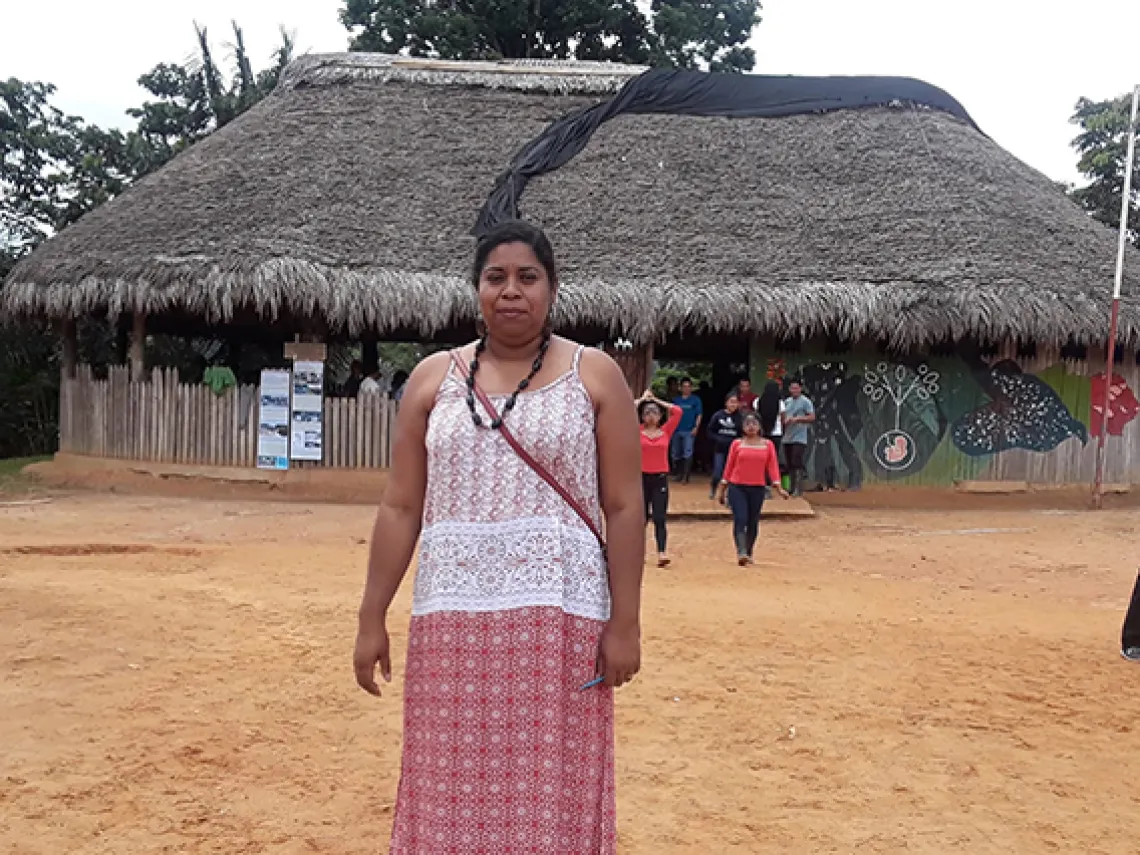IPLP Alumna Appointed as United Nations Expert on Rights of Indigenous Peoples
Anexa Brendale Alfred Cunningham is the second IPLP alumni named to the seven-member human rights body

Anexa Brendale Alfred Cunningham (LLM, ’06), alumna of the Indigenous Peoples Law and Policy (IPLP) program at University of Arizona Law was appointed to the United Nations Expert Mechanism on the Rights of Indigenous Peoples (EMRIP), becoming the second IPLP alumni named to the seven-member human rights body, along with alumna Erika Yamada (SJD, ’09).
The EMRIP was established in 2007 by the UN Human Rights Council with a mandate to provide expertise and recommendations to the Human Rights Council on the rights of Indigenous peoples and to advise U.N. member states on how to implement the United Nations Declaration on the Rights of Indigenous Peoples. Members of the EMRIP are selected based on expertise and experience in Indigenous human rights advocacy. Alfred will start her EMRIP term in May.
“I am honored to be able to serve and contribute to the development of the rights of Indigenous peoples through the work of the United Nations Human Rights Council as a member of EMRIP,” says Alfred. “It is truly a privilege to serve as the member representing Central and South America and the Caribbean. I look forward to advancing EMRIP’s important mission to develop best practices on self-determination and free, prior and informed consent, and offering policy recommendations for states and other actors.”
Alfred’s priorities for her 3-year term include focusing on urban Indigenous communities and how to protect their rights when they are not based in their traditional territory as well as the rights and issues facing isolated Indigenous communities that have little to no contact with the outside world.
‘I Didn’t Choose This Work, It Chose Me’
“I didn’t choose this work, it chose me,” Alfred remarks when reflecting on how she became an Indigenous human rights advocate.
Alfred is a member of the Miskitu Indigenous people and is the first member of her family to attend university and law school. When she first went to law school in Nicaragua in 2001, Indigenous human rights wasn't a big movement and it didn't get a lot of attention. There weren't attorneys at the time in Nicaragua doing Indigenous human rights work.
In 2001, she started working on Indigenous land and natural resources rights in Nicaragua. She met former IPLP faculty co-chair Professor S. James Anaya during an internship at the Inter-American Commission on Human Rights (IACHR), and it was there that he inspired her to go to University of Arizona Law to complete her Master of Laws (LLM) in Indigenous law and policy.
After completing her LLM, she became the first Indigenous lawyer for the IACHR executive secretariat, an important milestone in the Indigenous rights movement. While working with the IACHR, she helped to expand the framework of case studies on Indigenous issues within the IACHR executive secretariat, which allowed for more cases related to individual rights of Indigenous peoples and collective land rights, territories, natural resources, consultation, political rights, freedom of expression and health rights to be heard.
Alfred later returned to Nicaragua following the Awas Tingni case, a landmark judgement by the Inter-American Court of Human Rights that found the Nicaraguan government in violation of the collective land rights of the Awas Tingni people. There she assisted with the process of demarcating Indigenous lands for all Indigenous communities in the country. She then went on to develop training, seminars, and different conferences on human rights and Indigenous peoples in countries across the Americas and Europe, experiences she attributes partially to her time in the IPLP program.
“The IPLP program is an international benchmark that has provided the opportunity to reach important spaces in international human rights organizations, such as the Inter-American Commission on Human Rights and special mechanisms such as the EMRIP, to promote the development of the collective rights of Indigenous peoples.”
